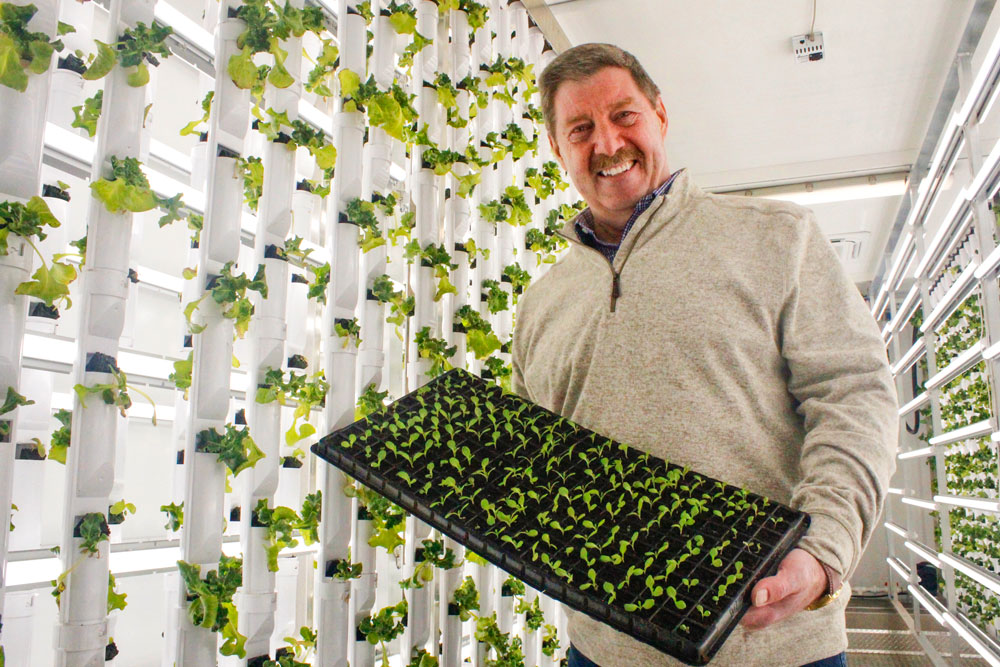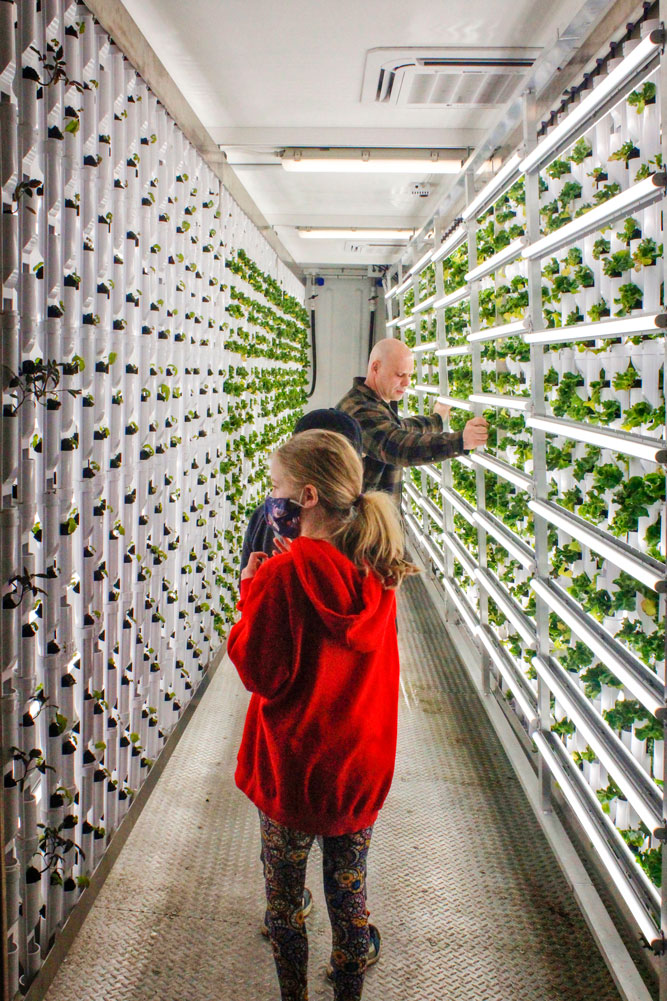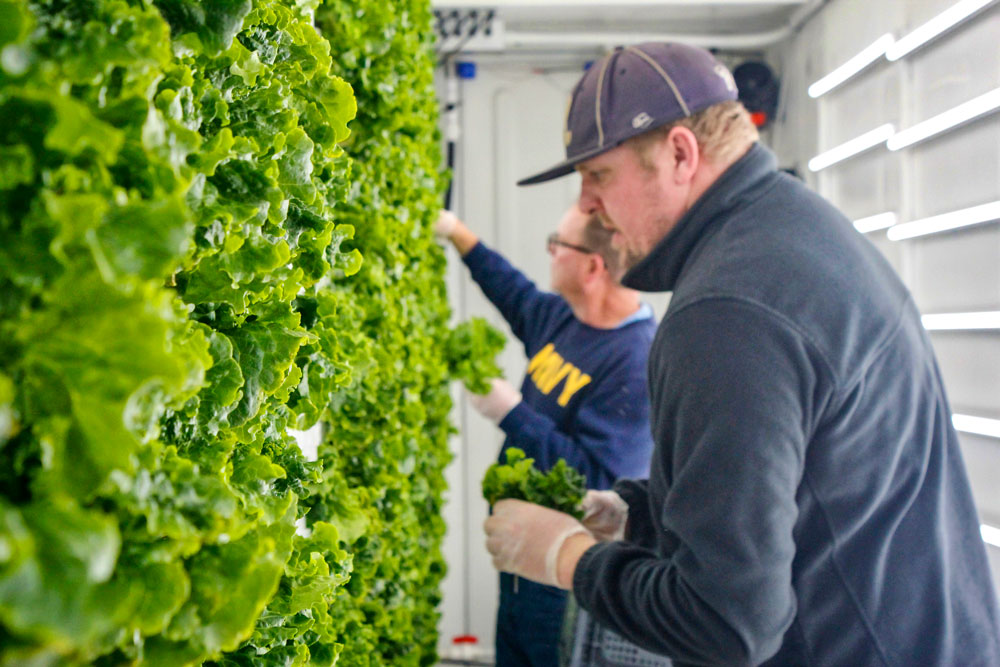Tech-based indoor farm company aims to feed the world
Article and photos by Chris Michlewicz

Rusty Walker, a 13-year resident of The Village at Castle Pines and CEO of FarmBox Foods LLC in Sedalia, holds seedlings that are later placed in a vertical hydroponic system.
A Sedalia-based company is using automated indoor farms to revolutionize how people worldwide can access a sustainable source of nutrient-rich food.
Held inside 320-square-foot shipping containers, FarmBox Foods uses a specialized vertical hydroponic watering system and LED lighting to grow produce like organic leafy greens and culinary herbs with great efficiency. The company also developed a first-of-its-kind indoor gourmet mushroom farm that yields approximately 400 pounds of mushrooms of several varieties per week, so much that FarmBox Foods had to open a roadside farm stand every Friday to make use of the large quantity of mushrooms generated at its home base on Plum Avenue on the outskirts of downtown Sedalia.
The containers have game-changing implications for island nations, urban areas, disaster zones, and “food deserts” in arid regions and the frozen reaches of Alaska and Canada. The transportation of food to far-flung places is often costly – financially and ecologically – and produce loses some of its nutritional value and shelf life while in transit. The company’s farms eliminate those issues, said Rusty Walker, CEO of FarmBox Foods and resident of The Village at Castle Pines.

The sensor-based vertical hydroponic farms made by FarmBox Foods contain produce in various stages of growth.
Walker says the farms bring with them jobs and educational opportunities, as well as a safe and secure way to generate farm-fresh food for populations that traditionally lack access.
When asked if automated indoor farming is the future, given the impacts of unpredictable weather patterns on conventional outdoor crops, Walker quickly responded, “Without a doubt.”
FarmBox Foods is in the process of partnering with institutions that help provide the biggest possible impact for the most people, including food banks, schools and hospitals. And with no shareholders, there is not a concern for immediately paying back investors and potentially detracting from the company’s mission-driven vision of decentralizing the food system and ending the ongoing global food crisis that’s been worsened by the pandemic.
According to the company, the repurposed shipping containers can be stacked and made to blend in with the surrounding environment. The low-carbon-footprint farms can also be equipped with solar technology, allowing for off-grid operation, and the hydroponic systems use 90% less water than traditional farms, something that will be particularly important in the future when fresh water resources are more scarce.
FarmBox Foods is only scratching the surface on potential impacts of the sensor-based farms, especially when it comes to food insecurity, stated Walker.
“The real mission in this whole thing is to be able to feed the world in places that ordinarily wouldn’t be able to grow food,” Walker said.

